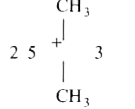Why detergents are better cleansing agents than soaps ? Explain.
Step-by-Step Solution:
1. Definition of Soaps and Detergents:
- Soaps are sodium or potassium salts of long-chain fatty acids, while detergents are typically ammonium or sulfonate salts of long-chain carboxylic acids.
2. Interaction with Hard Water:
- Hard water contains calcium (Ca²⁺) and magnesium (Mg²⁺) ions. Soaps react with these ions to form insoluble precipitates known as scum. This scum can adhere to fabrics and surfaces, reducing the effectiveness of the soap in cleaning.
3. Formation of Scum:
- When soap is used in hard water, the calcium and magnesium ions react with the soap molecules, leading to the formation of insoluble salts (scum). This scum can accumulate on the surfaces being cleaned, hindering the soap's ability to emulsify and remove dirt and grease.
4. Detergents' Performance in Hard Water:
- Detergents, on the other hand, do not react with calcium and magnesium ions in the same way. They remain soluble in hard water and do not form scum. This allows detergents to maintain their cleaning efficacy even in the presence of hard water.
5. Conclusion:
- Because detergents do not form insoluble precipitates and remain effective in hard water, they are considered better cleansing agents than soaps. They provide better cleaning performance and do not leave residues that can interfere with the cleaning process.
---
- Soaps are sodium or potassium salts of long-chain fatty acids, while detergents are typically ammonium or sulfonate salts of long-chain carboxylic acids.
- Hard water contains calcium (Ca²⁺) and magnesium (Mg²⁺) ions. Soaps react with these ions to form insoluble precipitates known as scum. This scum can adhere to fabrics and surfaces, reducing the effectiveness of the soap in cleaning.
- When soap is used in hard water, the calcium and magnesium ions react with the soap molecules, leading to the formation of insoluble salts (scum). This scum can accumulate on the surfaces being cleaned, hindering the soap's ability to emulsify and remove dirt and grease.
- Detergents, on the other hand, do not react with calcium and magnesium ions in the same way. They remain soluble in hard water and do not form scum. This allows detergents to maintain their cleaning efficacy even in the presence of hard water.
- Because detergents do not form insoluble precipitates and remain effective in hard water, they are considered better cleansing agents than soaps. They provide better cleaning performance and do not leave residues that can interfere with the cleaning process.
Topper's Solved these Questions
- XII BOARDSBOOK - XII BOARD PREVIOUS YEAR PAPER ENGLISHCHAPTER - XII BOARDSEXERCISE - [OUTSIDE DELHI : SET -II]
9 Videos
- XII BOARDSBOOK - XII BOARD PREVIOUS YEAR PAPER ENGLISHCHAPTER - XII BOARDSEXERCISE - [OUTSIDE DELHI : SET -III]
10 Videos
- XII BOARDSBOOK - XII BOARD PREVIOUS YEAR PAPER ENGLISHCHAPTER - XII BOARDSEXERCISE - [OUTSIDE DELHI : SET - II]
11 Videos
- SAMPLE PAPER 2019BOOK - XII BOARD PREVIOUS YEAR PAPER ENGLISHCHAPTER - SAMPLE PAPER 2019EXERCISE - SECTION: D
1 Videos
Similar Questions
Give reasons :
Detergents are better than soap.
View SolutionWhat is the difference between soaps and detergements ? State in brief the cleaing action of soaps is removing an oily spot from a fabric. Why are soaps not very effective whene a fabric is washed in hard water ? How is this problem resolved ? .
View Solution
Knowledge Check
Passage-3
Soaps are the detergents used since long. Soaps used for cleansing purpose are sodium or potassium salts of long chain fatty acids such as stearic acid, palmitic acid. These cannot be used with hard water. Synthetic detergents are cleansing agents which have all the properties of soap but which actually do not contain any soap. These can be used both in soft water and hard water as they give foam even in hard water.
Which is not true for a detergent molecule ?AIt has a non polar organic part and a polar groupBIt has a surface active reagentCIt is a sodium salt of a fatty acidDIt is not easily biodegradedPassage-3
Soaps are the detergents used since long. Soaps used for cleansing purpose are sodium or potassium salts of long chain fatty acids such as stearic acid, palmitic acid. These cannot be used with hard water. Synthetic detergents are cleansing agents which have all the properties of soap but which actually do not contain any soap. These can be used both in soft water and hard water as they give foam even in hard water.
Which of the following is called invert soap?ASodium stearateBCetyl trimethyl ammonium bromideCSodium lauryl sulphateDTetraethyl ammonium chloridePassage-3
Soaps are the detergents used since long. Soaps used for cleansing purpose are sodium or potassium salts of long chain fatty acids such as stearic acid, palmitic acid. These cannot be used with hard water. Synthetic detergents are cleansing agents which have all the properties of soap but which actually do not contain any soap. These can be used both in soft water and hard water as they give foam even in hard water.
Which one of the following is not a surfactant?A BCH3(CH2)4CH2NH2CCH3−(CH2)16CH2OSO−2Na+DOHC−(CH2)4CH2COO−Na+
BCH3(CH2)4CH2NH2CCH3−(CH2)16CH2OSO−2Na+DOHC−(CH2)4CH2COO−Na+
Explain the cleansing action of soaps.
View SolutionWhy is H2S a better reducing agent than H2O ?
View SolutionHow are synthetic detergents better than soaps ?
View SolutionAlthough carbon and hydrogen are better reducing agents but they are not used to reduce metallic oxides at high temperatures. Why?
View SolutionH2O2 is a better oxidising agents than water.
View Solution
